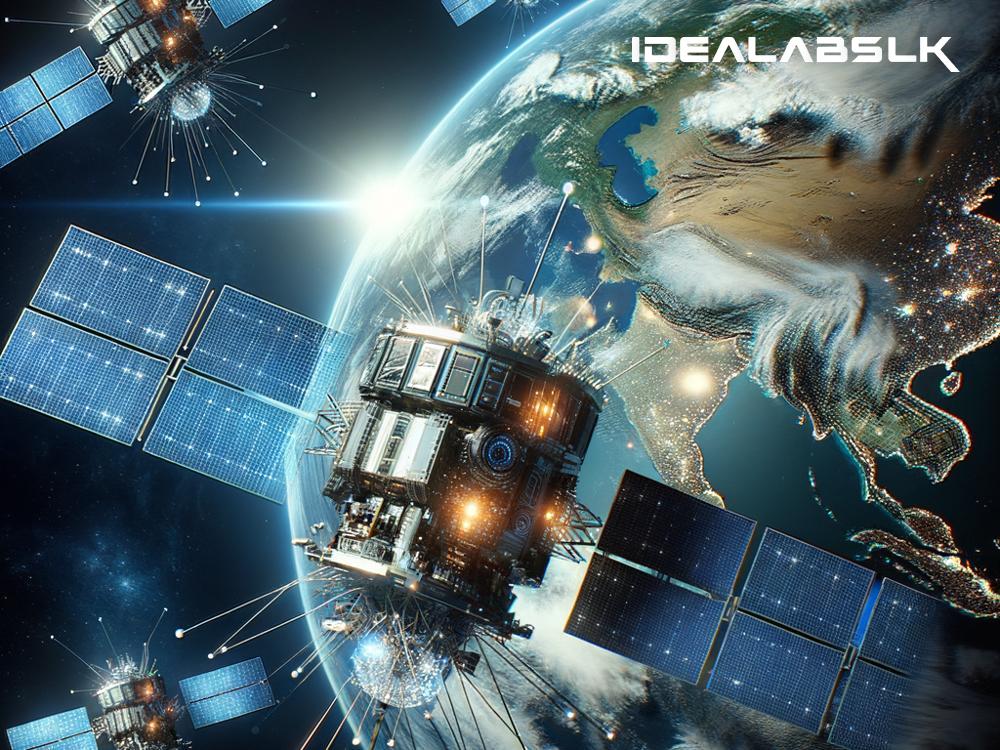How Space-Based AI Will Revolutionize Navigation and Communication Systems by 2025
Imagine the globe as it spins in space, dotted with satellites whirling around it much like bees around a hive. It's 2023 and we're on the cusp of a major leap forward — by 2025, space-based AI promises to bring a kind of transformation to navigation and communication systems that sounds straight out of a sci-fi novel. But how exactly? Let's dive in.
Navigation: Knowing Where You Are, with Pinpoint Accuracy
First off, let's talk about navigation. Today, GPS systems can get us from point A to B, guide our planes, and help ships traverse vast oceans. Yet, they're not without their flaws. Enter AI-powered space systems. By 2025, these smarter systems are expected to provide hyper-accurate location data, irrespective of where you are on Earth. Whether you're deep in the Sahara desert, amidst the skyscrapers of New York, or sailing the high seas, getting lost might just become a thing of the past.
AI in space can predict and adjust for factors that currently throw GPS off — like atmospheric interference or obstructions. Space-based AI can learn from vast amounts of data to predict patterns, improve signal accuracy, and even troubleshoot its own errors in real-time. This means your position on Earth could be pinpointed with unprecedented accuracy, making your journeys safer and more efficient.
Communication: Breaking Down Barriers Like Never Before
Now, let's shift our gaze to communication. Our world thrives on connectivity, from the simple joy of a video call with a loved one to the critical operations of international businesses. But not everyone has equal access; remote and underserved communities often get left behind. Space-based AI is set to change that narrative by dramatically improving global internet coverage and connectivity speeds.
Satellites armed with AI aren't just floating aimlessly; they're actively learning and optimizing. They can manage networks to avoid congestion, reroute data for faster delivery, and repair signal issues on the fly. This means high-speed internet could become a reality for the 3 billion people currently offline, bridging the digital divide and unlocking new opportunities for education, healthcare, and economic growth worldwide.
The Interplay: When Navigation and Communication Collide
What happens when improved navigation and communication systems work together? Magic. Well, not literally, but it'll feel like it. For one, emergency response could be revolutionized. Imagine a scenario where disaster strikes — AI-enhanced satellites could immediately assess the situation, guide rescue teams with precision, and ensure clear, uninterrupted communication, all but ensuring a swifter, more effective response.
Moreover, industries like shipping and logistics stand to reap huge benefits. With better location data and communication, managing fleets becomes a breeze, saving time and reducing environmental impact. This isn't just good for business; it's good for the planet.
Looking Ahead: A Space-Based AI Future
So, where does this leave us? In the near future, walking into 2025, we're looking at a world where getting lost is more challenging than finding your way. A world where high-speed internet does not distinguish between a bustling city and a secluded village. This isn't wishful thinking; it's a rapidly approaching reality, thanks to the pioneering work with space-based AI.
The implications are far-reaching. Beyond just improving how we navigate and communicate, this leap forward promises to bolster global security, foster economic development, and even pave the way for new scientific discoveries. By enabling seamless, global connectivity, we're not just enhancing current systems; we're building the foundation for future innovations we can barely imagine.
In Conclusion
As we gaze toward 2025, it's clear that space-based AI isn't just about launching tech into the cosmos; it's about creating a connected, accessible, and safer world for all. The stars aren't just points of light in the night sky anymore; they're beacons of potential, guiding us toward a future where the whole world is truly within our reach.

